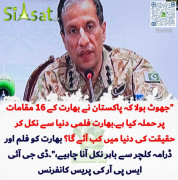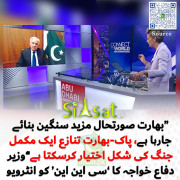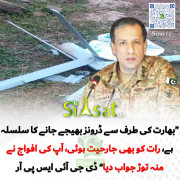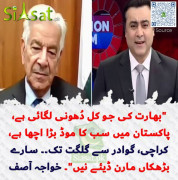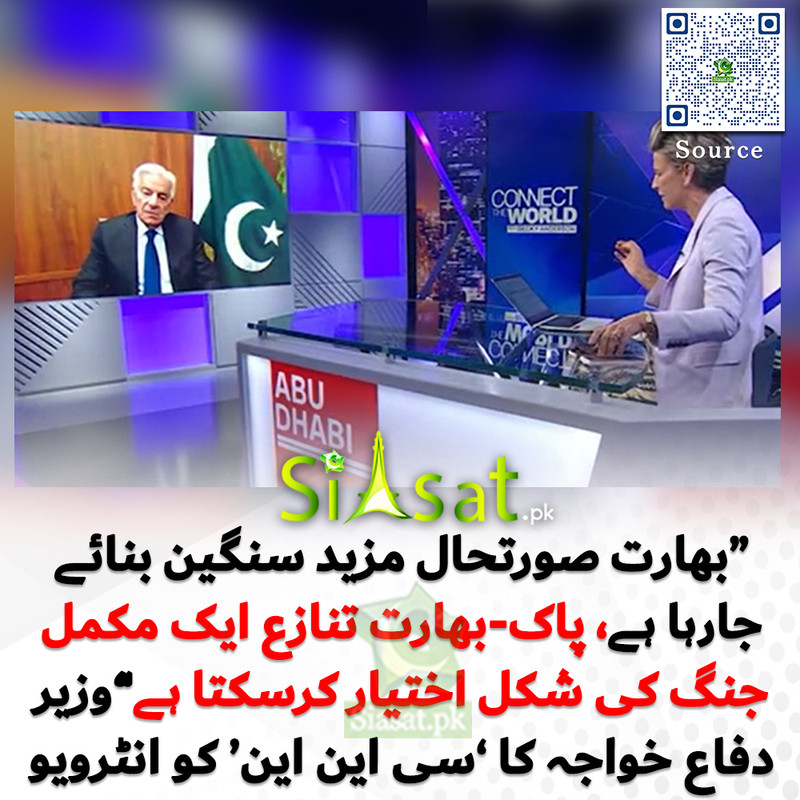M Ali Khan
Minister (2k+ posts)
[h=1]Iran: Managing U.S. Military Action in Syria[/h] Analysis
September 4, 2013 | 0630 Print Text Size

Iranian President Hassan Rouhani in Tehran on Sept. 3. (BEHROUZ MEHRI/AFP/Getty Images)
[h=2]Summary[/h] Conventional wisdom says that a weakened Syria would undermine Iran's regional influence, but a U.S. military intervention in the country could actually benefit Tehran. The government there has devised a sophisticated strategy for responding to a U.S. attack. Of course, Tehran would activate its militant proxies in the region, including Hezbollah, in the event that the United States launches an attack, but it would also exploit Washington's visceral opposition to Sunni jihadist and Islamist groups to gain concessions elsewhere.
[h=2]Analysis[/h] Iran already has engaged diplomatically with many of those involved in the Syrian conflict. Over the past weekend, Alaeddin Boroujerdi, the foreign affairs and national security head for the Iranian parliament, led a delegation to Damascus, presumably to discuss the potential U.S. attack. Earlier on Aug. 29, Russian President Vladimir Putin spoke with Iranian President Hassan Rouhani over the phone. Their conversation followed U.N. Undersecretary-General for Political Affairs Jeffrey Feltman's visit to Tehran, where he and Iranian Foreign Minister Mohammad Javad Zarif likewise discussed Syria. Even the Omani sultan paid a rare visit to Iran, reportedly carrying with him positive messages from the Obama administration for Iran's new government.
Notably, the rhetoric from Tehran -- particularly from its military leadership -- has been relatively tame. Typically the government antagonizes Washington when U.S.-Iranian tensions heat up, and indeed the Syria situation has aggravated tensions. Syria is a critical Iranian ally, and the survival of the al Assad regime is a national security interest for Tehran. Iran cannot afford to directly retaliate against the United States, but it is widely expected to retaliate indirectly through militant proxies.
[h=3]Skillful Maneuvers[/h] Iran's strategy involves more than just activating these proxy groups. It entails the kind of skillful maneuvering it displayed as the United States sought regime change in Afghanistan and Iraq. Tehran cooperated with Washington, and it benefited greatly from the downfall of the Taliban and Saddam Hussein accordingly. The Iranian strategists who helped devise those approaches are once again in power. Zarif, for example, was Tehran's point of contact with the George W. Bush administration in the early days after 9/11.
However, the Syria situation differs from those of Afghanistan and Iraq. This time it is Washington's aversion to regime change that Tehran is trying to exploit. In fact, the only real reason the United States would want to replace al Assad is to curb Iran's regional influence, which grew considerably after Saddam's ouster. But Washington does not want to supplant al Assad only to see Damascus come under al Qaeda's control. This partly explains why Hossein Mousavian, a close associate of Rouhani, wrote an op-ed Aug. 29 that said regime change in Kabul is "a blueprint for new collaboration" between Washington and Tehran. Mousavian called for U.S.-Iranian cooperation to extend beyond Syria to better manage the crisis-ridden region.

While the potential exists for U.S.-Iranian cooperation on Syria, U.S. military action undoubtedly would weaken the country. This carries serious risks for Iranian interests. An unfriendly Syria could cut Tehran off from Hezbollah, its pre-eminent non-state Arab ally, and jeopardize the position of its Iraqi allies.
However, limited airstrikes on Syria that do not undermine the al Assad regime could actually work in Iran's favor. Such airstrikes could divide the rebellion between factions that oppose military intervention and those that favor it. Through their Syrian, Lebanese and Iraqi allies, the Iranians would then be able to better manage the rebellion, which includes radical Islamist elements.
Because these elements have been gaining more territory, the United States may need Iranian cooperation in forging a new Syrian polity. Washington is currently preparing to speak directly to Tehran over the controversial Iranian nuclear program. The Iranian government has already linked these two issues, and it believes it could use Syria to its advantage as it negotiates the nuclear problem.
[h=3]Welcoming Disruption[/h] Iran cannot rule out the possibility that even limited U.S. action will weaken the regime. Nor can it conclude that Washington does not intend to conduct a more extensive, less symbolic air campaign against al Assad. But it can, however, prepare for either outcome. Strategists in Tehran know that the Americans have air superiority, but they know Iran has the advantage on the ground in Syria, Lebanon and Iraq.
Iran is thus positioned to foment an insurgency. (And the U.S. invasion of Iraq enhanced Iran's experience in fomenting insurgencies.) Any insurgency would worsen sectarian tensions in Syria and throughout the region, in turn further radicalizing Sunni militias. Jihadists gaining ground would force the United States to work with Tehran to contain Sunni radicalism.
In the unlikely scenario that the United States becomes embroiled in another major war, extricating itself from that war would necessarily require Iran's cooperation. But what really gives Iran leverage is the fact that since 9/11, jihadists and Islamist groups have had the opportunity to gain power when Arab regimes collapse.
Unlike Syria's Arab neighbors, which want stability in the region, Iran welcomes disruption. It is reasonably secure internally, and it knows its spheres of influence may weaken but ultimately will not dissolve. Strategists also believe that having lived under sanctions for decades, Iran has grown accustomed to suffering. So while chaos in Syria would threaten inherently weak Arab states, it would not affect Iran quite as much. Tehran could then exploit Arab chaos to its advantage.
In light of these risks, it is unlikely that the United States would deliberately engage in a large-scale military intervention in Syria. But Iran can never be too sure about U.S. intentions, and it has to account for the unintended consequences of even minimal military action. It is for this reason that Tehran has planned for multiple contingencies.
A lot can go wrong when plans are executed, especially when the situation is as fluid as it is in Syria. For Iran, this fluidity offers some risks, but it also offers some opportunities. The commonly held belief that a post-al Assad Syria invariably would be bad for Iran is not a guarantee.
Read more: Iran: Managing U.S. Military Action in Syria | Stratfor
Follow us: @stratfor on Twitter | Stratfor on Facebook
September 4, 2013 | 0630 Print Text Size

Iranian President Hassan Rouhani in Tehran on Sept. 3. (BEHROUZ MEHRI/AFP/Getty Images)
[h=2]Summary[/h] Conventional wisdom says that a weakened Syria would undermine Iran's regional influence, but a U.S. military intervention in the country could actually benefit Tehran. The government there has devised a sophisticated strategy for responding to a U.S. attack. Of course, Tehran would activate its militant proxies in the region, including Hezbollah, in the event that the United States launches an attack, but it would also exploit Washington's visceral opposition to Sunni jihadist and Islamist groups to gain concessions elsewhere.
[h=2]Analysis[/h] Iran already has engaged diplomatically with many of those involved in the Syrian conflict. Over the past weekend, Alaeddin Boroujerdi, the foreign affairs and national security head for the Iranian parliament, led a delegation to Damascus, presumably to discuss the potential U.S. attack. Earlier on Aug. 29, Russian President Vladimir Putin spoke with Iranian President Hassan Rouhani over the phone. Their conversation followed U.N. Undersecretary-General for Political Affairs Jeffrey Feltman's visit to Tehran, where he and Iranian Foreign Minister Mohammad Javad Zarif likewise discussed Syria. Even the Omani sultan paid a rare visit to Iran, reportedly carrying with him positive messages from the Obama administration for Iran's new government.
Notably, the rhetoric from Tehran -- particularly from its military leadership -- has been relatively tame. Typically the government antagonizes Washington when U.S.-Iranian tensions heat up, and indeed the Syria situation has aggravated tensions. Syria is a critical Iranian ally, and the survival of the al Assad regime is a national security interest for Tehran. Iran cannot afford to directly retaliate against the United States, but it is widely expected to retaliate indirectly through militant proxies.
[h=3]Skillful Maneuvers[/h] Iran's strategy involves more than just activating these proxy groups. It entails the kind of skillful maneuvering it displayed as the United States sought regime change in Afghanistan and Iraq. Tehran cooperated with Washington, and it benefited greatly from the downfall of the Taliban and Saddam Hussein accordingly. The Iranian strategists who helped devise those approaches are once again in power. Zarif, for example, was Tehran's point of contact with the George W. Bush administration in the early days after 9/11.
However, the Syria situation differs from those of Afghanistan and Iraq. This time it is Washington's aversion to regime change that Tehran is trying to exploit. In fact, the only real reason the United States would want to replace al Assad is to curb Iran's regional influence, which grew considerably after Saddam's ouster. But Washington does not want to supplant al Assad only to see Damascus come under al Qaeda's control. This partly explains why Hossein Mousavian, a close associate of Rouhani, wrote an op-ed Aug. 29 that said regime change in Kabul is "a blueprint for new collaboration" between Washington and Tehran. Mousavian called for U.S.-Iranian cooperation to extend beyond Syria to better manage the crisis-ridden region.

While the potential exists for U.S.-Iranian cooperation on Syria, U.S. military action undoubtedly would weaken the country. This carries serious risks for Iranian interests. An unfriendly Syria could cut Tehran off from Hezbollah, its pre-eminent non-state Arab ally, and jeopardize the position of its Iraqi allies.
However, limited airstrikes on Syria that do not undermine the al Assad regime could actually work in Iran's favor. Such airstrikes could divide the rebellion between factions that oppose military intervention and those that favor it. Through their Syrian, Lebanese and Iraqi allies, the Iranians would then be able to better manage the rebellion, which includes radical Islamist elements.
Because these elements have been gaining more territory, the United States may need Iranian cooperation in forging a new Syrian polity. Washington is currently preparing to speak directly to Tehran over the controversial Iranian nuclear program. The Iranian government has already linked these two issues, and it believes it could use Syria to its advantage as it negotiates the nuclear problem.
[h=3]Welcoming Disruption[/h] Iran cannot rule out the possibility that even limited U.S. action will weaken the regime. Nor can it conclude that Washington does not intend to conduct a more extensive, less symbolic air campaign against al Assad. But it can, however, prepare for either outcome. Strategists in Tehran know that the Americans have air superiority, but they know Iran has the advantage on the ground in Syria, Lebanon and Iraq.
Iran is thus positioned to foment an insurgency. (And the U.S. invasion of Iraq enhanced Iran's experience in fomenting insurgencies.) Any insurgency would worsen sectarian tensions in Syria and throughout the region, in turn further radicalizing Sunni militias. Jihadists gaining ground would force the United States to work with Tehran to contain Sunni radicalism.
In the unlikely scenario that the United States becomes embroiled in another major war, extricating itself from that war would necessarily require Iran's cooperation. But what really gives Iran leverage is the fact that since 9/11, jihadists and Islamist groups have had the opportunity to gain power when Arab regimes collapse.
Unlike Syria's Arab neighbors, which want stability in the region, Iran welcomes disruption. It is reasonably secure internally, and it knows its spheres of influence may weaken but ultimately will not dissolve. Strategists also believe that having lived under sanctions for decades, Iran has grown accustomed to suffering. So while chaos in Syria would threaten inherently weak Arab states, it would not affect Iran quite as much. Tehran could then exploit Arab chaos to its advantage.
In light of these risks, it is unlikely that the United States would deliberately engage in a large-scale military intervention in Syria. But Iran can never be too sure about U.S. intentions, and it has to account for the unintended consequences of even minimal military action. It is for this reason that Tehran has planned for multiple contingencies.
A lot can go wrong when plans are executed, especially when the situation is as fluid as it is in Syria. For Iran, this fluidity offers some risks, but it also offers some opportunities. The commonly held belief that a post-al Assad Syria invariably would be bad for Iran is not a guarantee.
Read more: Iran: Managing U.S. Military Action in Syria | Stratfor
Follow us: @stratfor on Twitter | Stratfor on Facebook


